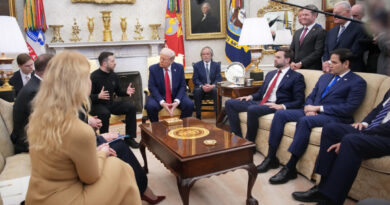Lawmakers Call on RFK Jr. to Step Down from All Vaccine-Related Decisions
If approved by the Senate, Robert F. Kennedy Jr. will serve as the next U.S. health secretary.
On February 2, several Democratic lawmakers stated that Robert F. Kennedy Jr. should pledge to steer clear of any decisions pertaining to vaccines if he is confirmed as the next U.S. health secretary.
President Donald Trump has nominated Kennedy, a lawyer, to lead the U.S. Department of Health and Human Services.
This department encompasses the Food and Drug Administration, which approves vaccines, and the U.S. Centers for Disease Control and Prevention, which provides vaccine guidance widely adopted across states.
The Senate Finance Committee is set to vote on Kennedy’s nomination this week. If a majority supports it, the nomination will advance to the full Senate.
“According to the referral agreement, I am entitled to receive 10% of fees awarded in contingency fee cases referred to the firm. I am not handling these cases, I am not listed as the attorney of record for them, and I will not provide representation in connection with these cases during my appointment as Secretary,” Kennedy stated.
The Finance Committee has identified at least five cases associated with the litigation surrounding the Gardasil human papillomavirus vaccine in which Kennedy remains designated as the attorney of record.
“When the Committee questioned you, you did not directly address this omission nor clarify any potential financial compensation you might receive related to these cases,” Wyden and Warren commented.
While Kennedy has agreed to divest from those cases, he refused to recuse himself from decisions related to Gardasil in written communications with the panel, the senators pointed out. He also revealed that he was transferring his interest in cases referred to Wisner Baum to his adult son, which could allow a close family member to benefit from Kennedy’s position as secretary if he is confirmed.
Recusing himself from vaccine-related decisions and communications would “ensure that vaccine-related policy-making and communications are not inappropriately influenced by your personal views to the detriment of scientific evidence,” they wrote.
A spokesperson for Kennedy did not respond to phone inquiries or return a voicemail.




